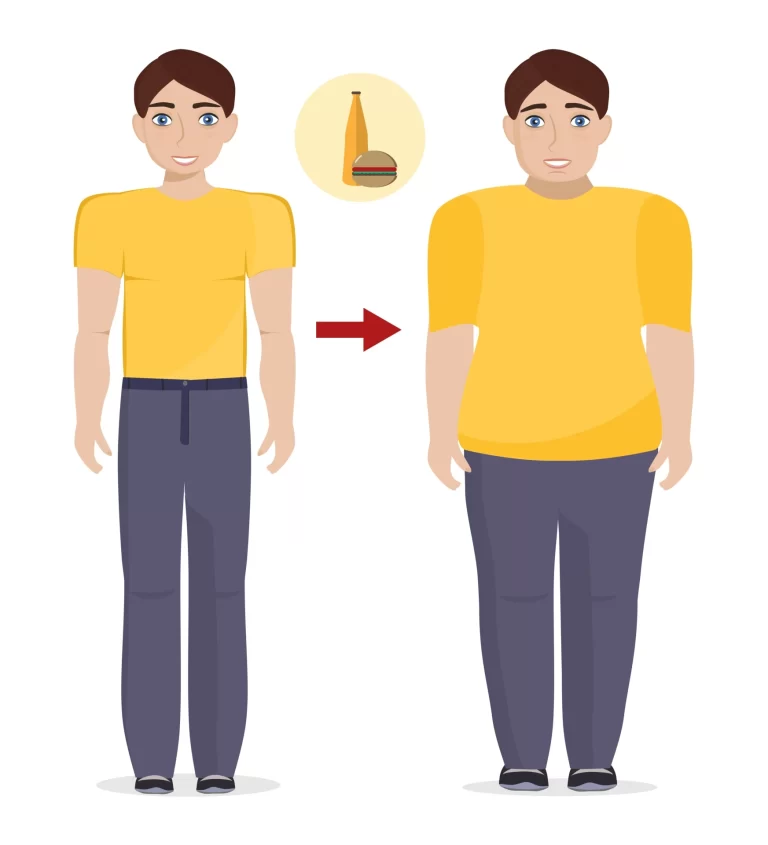30 Best Healthy Eating Tips for Busy People
In our fast-paced world, it’s easy to overlook the fundamental role that a balanced diet plays in our overall well-being. Healthy eating isn’t just about calorie counting or fad diets; it’s a holistic approach to nourishing your body and mind.
This article is your guide to rekindling your relationship with food, embracing nutritious choices, and ultimately, unlocking the path to a vibrant, energized life. Join us as we explore essential tips and strategies for making lasting, positive changes to your dietary habits.
Whether you’re a seasoned health enthusiast or just embarking on your wellness journey, these healthy eating tips will help you on your quest to achieve and maintain optimal health.
Table of Contents
Introduction
A diet rich in fruits and vegetables has been scientifically proven to give numerous health benefits, such as decreasing the risk of several chronic diseases and keeping the body healthy.
However, making more changes to the diet can sometimes seem very overwhelming.
If a person eats or drinks more than the body needs, they’ll put on weight because the energy you do not use is stored as fat. If a person eats and drinks too little, they’ll lose weight.
A person should also eat a wide range of foods to make sure they’re getting a balanced diet and the body is receiving all the nutrients it needs.
Men should consume approximately 2,500 calories (10,500 kilojoules) per day, while women should consume approximately 2,000 calories (8,400 kilojoules) per day.
Most adults in the UK are eating more calories than they need and should eat fewer calories.
It could be better to start with a few little adjustments rather than a few major ones. Additionally, starting with one item rather than all of them at once is probably more manageable.
There are some minor adjustments that can somewhat improve the health of a regular diet. Just keep in mind that doing them all at once is not necessary. Rather, one might prefer to gradually incorporate these modifications into their life. They are listed below:
Slow down
The pace at which a person eats influences how much they eat, as well as how likely they are to gain weight.
Fast eaters are really far more likely than slow eaters to consume more and have a higher body mass index (BMI), according to studies comparing their eating speeds.
Hormones regulate your appetite, food intake, and feelings of fullness. Your hunger and fullness are communicated to the brain by hormones.
However, it takes about 20 minutes for the brain to receive these all messages. That’s why eating more slowly may give the brain the time it needs to perceive that you’re full.
Studies have confirmed this, showing that eating slowly may decrease the number of calories you consume at meals and help to lose weight.
Eating slowly is also linked to more thorough chewing, which has also been linked to improved weight control.
So, simply eating slower and chewing more often may help to eat less.
Choose whole-grain bread instead of refined
A person can easily make the diet a bit healthier by choosing whole grain bread in place of traditional refined grain bread.
Refined grains have been connected with many health issues. Whole grains, on the other hand, have been linked to a variety of health benefits, including a decreased risk of type 2 diabetes, heart disease, and cancer.
They are also a good source of:
- Fiber
- B vitamins
- Minerals include manganese, iron, magnesium, and zinc.
There are many varieties of whole-grain bread available, and many of them even taste better than refined bread.
Add Greek yogurt to the diet
Simple yogurt is thinner and less creamy than Greek yogurt.
The watery portion of milk called whey has been extracted by straining it. As a result, the finished product has more protein and fat than typical yogurt.
In actuality, it has up to twice as much protein—that is, up to 10 grams every 3.5 ounces, or 100 grams—as standard yogurt.
If controlling your appetite and consuming less food is your aim, eating a healthy supply of protein will help you feel filled for longer.
Furthermore, Greek yogurt has less lactose and carbohydrates than conventional yogurt because it has been strained. This makes it appropriate for those who adhere to a low-carb diet or are lactose intolerant.
Greek yogurt can easily be substituted for some snacks or ordinary yogurt variants to provide a substantial amount of protein and minerals.
Just be careful you get the flavorless, plain kinds. Yogurts with flavorings may be loaded with extra sugar and other unhealthful components.
Make a list of shopping to avoid buying unhealthy food
When you go grocery shopping, there are two key tactics to use: Prepare your grocery list in advance and avoid going to the store when you’re hungry.
Lack of knowledge about what you actually need allows you to make impulsive purchases, and hunger can lead you to add extra low-nutrient items to your shopping basket.
For this reason, making a list of your needs in advance and planning ahead is the best course of action. By following your list and doing this, you’ll save money in addition to purchasing healthier household essentials.
Consume eggs, ideally for breakfast.
Eggs are quite nutritious, particularly when had first thing in the morning.
They contain a lot of vital nutrients, like choline, that individuals frequently don’t get enough of, as well as high-quality protein
Studies comparing different breakfast options with the same number of calories show that eggs are superior.
Feelings of fullness are increased by eating eggs in the morning. It has been demonstrated that doing this makes people eat fewer calories at subsequent meals. It can be really helpful if you wish to lose weight.
For instance, in research involving fifty participants, eating an egg-based meal lowered sensations of hunger and the quantity of calories taken later in the day compared to a cereal breakfast
Therefore, just switching to eggs for breakfast could have a significant positive impact on your health.
Up your intake of Protein
As the “king of nutrients,” protein certainly seems to possess certain superpowers.
It’s frequently regarded as the most satisfying of the macronutrients because of its capacity to influence your hormones related to appetite and satiety (
According to one study, eating a high-protein lunch reduced an obese person’s ghrelin levels more than eating a high-carb meal did.
Additionally, protein aids in the maintenance of muscle mass and may marginally raise daily caloric expenditure. It’s also crucial to avoid the possible loss of muscle mass that comes with losing weight and aging.
Add a source of protein to every meal and snack if you’re attempting to lose weight. It will decrease your cravings, help you feel satisfied for longer, and lessen the likelihood that you will overeat.
Among the good sources of protein are:
- Dairy items
- Almonds
- Peanut butter
- Beans
- Eggs
- Lean meat
Drink adequate water
Water consumption is crucial for good health.
Drinking water can help you lose weight, maintain it, and even marginally improve your daily calorie burn.
Water consumption prior to meals has also been shown in studies to decrease hunger and subsequent meal intake. Having stated that the more important thing is to drink water rather than other beverages. This could significantly lower the amount of sugar and calories you consume.
Regular water consumption may also reduce the amount of calories you consume from beverages and be associated with better diet quality.
Bake or roast instead of frying or grilling
The impact that food has on your health can be significantly altered by the manner it is prepared.
For cooking meat and fish, grilling, broiling, frying, and deep-frying are common techniques.
However, a number of potentially hazardous chemicals are created during these kinds of cooking techniques. These consist of:
- Polycyclic aromatic hydrocarbons
- Advanced glycation end products
- Heterocyclic amines
These substances have all been connected to a number of illnesses, including as cancer and heart disease.
Healthier cooking methods contain:
- Baking
- Broiling
- Poaching
- Pressure cooking
- Simmering
- Slow cooking
- Stewing
- Sous-vide
These techniques may improve the nutritional value of your meals while inhibiting the production of these dangerous substances.
You can still enjoy the occasional grilled or deep-fried meal, but you should only make those preparations rarely.
Consume vitamin D and omega-3 supplements.
Globally, almost 1 billion people lack enough amounts of vitamin D.
As a fat-soluble vitamin, vitamin D is crucial for healthy bones and healthy immune system operation. Vitamin D is so important that it has receptors in every cell in your body.
Few foods contain vitamin D, with fatty fish often having the highest concentration.
Another nutrient that is frequently deficient and present in fatty fish is omega-3 fatty acids. They play a number of vital functions in the body, such as lowering inflammation, protecting the heart, and fostering healthy brain development.
Omega-6 fatty acids, which raise inflammation and have been connected to a number of chronic disorders, are typically found in very high concentrations in the Western diet. By reducing inflammation and maintaining a more balanced condition in your body, omega-3s aid.
If a person doesn’t eat fatty seafood regularly you might want to think about supplementing. Many supplements include omega-3 fatty acids with vitamin D.
Replace your preferred fast-food
It’s not necessary to eat bad meals when dining out.
Think about switching to a healthier fast-food place from your current fave.
Numerous fusion kitchens and healthy fast food establishments provide delectable and nutritious meals.
They might be a fantastic substitute for your preferred pizza or burger joint. Furthermore, these meals are typically reasonably priced.
Try at least one new nutritious recipe each week.
Making dinner may be an ongoing cause of irritation, which is why a lot of people find themselves returning again and time again to the same recipes. It’s likely that you’ve been making the same dishes automatically for years.
Regardless of how healthy or unhealthy these dishes are, experimenting can be a fun way to increase the variety in your diet.
Try preparing a fresh, healthful dish at least once a week. This can introduce some new and nutrient-dense meals into your routine while also varying your food and nutrient consumption.
Alternatively, experiment with different herbs, spices, and ingredients to try to develop a healthier version of a beloved recipe.
Choose roasted potatoes and reject fried fries
Potatoes are a popular side dish for many cuisines and are quite satisfying. Having said that, their effect on health is primarily determined by the way they are prepared.
To begin with, three times as many calories (333) are found in 3.5 ounces (100 grams) of baked potatoes as in the same amount of french fries.
Furthermore, unhealthy substances including trans fats and aldehydes are typically included in deep-fried french fries.
One excellent strategy to reduce calorie intake and stay away from these harmful substances is to substitute baked or boiled potatoes for your french fries.
Start with some greens.
Eating greens as an appetizer is an excellent method to make sure you get your fill of nutrition.
You’ll probably consume all of your greens at your hungriest if you do this. You might eat fewer of the meal’s other, possibly less healthful, components as a result of this.
You might eat fewer, healthier calories overall as a result, which might help you lose weight.
Moreover, studies have shown that eating veggies before to a high-carb meal reduces blood sugar levels.
It may help diabetics with both short- and long-term blood sugar control since it slows down the rate at which carbohydrates are taken into the bloodstream
Consume your fruits rather than sipping them.
Fruits are a great source of vitamins, antioxidants, fiber, and water.
Research has consistently demonstrated a connection between eating fruit and a lower risk of heart disease, type 2 diabetes, and cancer.
Owing to the presence of fiber and other plant-based substances, fruits’ natural sugars typically digest relatively slowly and don’t result in significant blood sugar rises.
However, fruit juices are an exception to this guideline.
A lot of fruit juices are actually manufactured with sugar and concentrate rather than actual fruit. A sugary soft drink’s worth of sugar may even be present in some variants.
The fiber and resistance to chewing that whole fruits offer are absent from even genuine fruit juices. This increases the likelihood that fruit juice may cause a blood sugar surge and cause you to eat too much at once.
Do more exercise
Exercise and a healthy diet frequently go hand in hand. Exercise has been demonstrated to elevate mood and reduce stress, anxiety, and depressive symptoms.
Exercise on a regular basis can help reduce your chance of developing significant health disorders in addition to consuming a healthy diet. It’s crucial for your general health and well-being as well.
Obesity and excess weight have been linked to heart disease, stroke, type 2 diabetes, and several types of cancer. Being underweight may also have an effect on your health. Exercise and keep your weight in check.
Most adults need to reduce their calorie intake in order to lose weight.
Be more active and reduce your intake of food if you want to lose weight. You may stay at a healthy weight by eating a balanced, healthful diet.
Emotional and binge eating are more likely to be influenced by these exact sensations.
Exercise can benefit you not only in building stronger muscles and bones but also in:
- Reduce weight and boost your vitality
- Lower the chance of developing chronic illnesses
- Enhance your sleep
Aim for roughly half an hour of moderate-to-intense exercise per day, or just use the stairs and take quick strolls whenever you can.
Exchange sugar-filled drinks with refreshing water
Drink plenty of water to avoid being dehydrated. It is suggested by the government to consume six to eight cups daily. This is on top of the fluids you consume from your diet.
All non-alcoholic beverages are acceptable, but the healthiest options include water, milk with less fat, and drinks with less sugar, including tea and coffee.
Avoid sugar-filled soft drinks and carbonated drinks as they are heavy in calories. They harm your teeth as well.
Smoothies and unsweetened fruit juices are also high in free sugar.
Sugar-filled drinks may be the worst thing you can put in your mouth.
They include a lot of added sugar, which has been connected to a number of illnesses, such as:
- Heart conditions
- Obesity
- Diabetes type 2
Furthermore, these drinks’ added sugar has a different effect on hunger than ordinary food. This implies that you don’t eat less to make up for the calories you consume from beverages
A 16-ounce (492 ml) sugar-filled Coke has roughly 207 calories.
Try switching to a sugar-free substitute for your sweet drink, or just go with still or sparkling water. By doing this, you will cut back on the calories that aren’t helpful and lower the amount of sugar you consume.
You shouldn’t have more than 150ml (a tiny glass) of fruit, vegetable, or smoothie juice in total per day.
Recall to stay hydrated during hot temperatures or while exercising by drinking more water
Stay away from “diet” foods
Foods marketed as diet items might be somewhat misleading. They are frequently referred to as “fat-free,” “low fat,” “fat-reduced,” or “low calorie” because their fat content has typically been drastically decreased.
However, sugar and other ingredients are frequently added to make up for the flavor and texture that fat and other substances lose.
Thus, a lot of diet items wind up having higher sugar and occasionally even higher calorie content than their full-fat equivalents.
Choose whole foods like fruits and veggies instead.
Obtain a restful night’s sleep
One can’t overstate the value of getting enough sleep.
Lack of sleep alters the regulation of hunger, frequently resulting in an increase in appetite. As a result, one consumes more calories and gains weight.
As a matter of fact, individuals with insufficient sleep tend to weigh considerably more than those with adequate sleep.
Lack of sleep also impairs immune system performance, athletic performance, focus, productivity, and glucose metabolism.
Additionally, it raises your chance of developing a number of illnesses, such as heart disease and inflammatory diseases.
For this reason, it’s critical to make an effort to obtain enough restful sleep, ideally in a single session.
Choose fresh berries over dried ones to consume.
Berries are incredibly nutrient-dense, high in fiber, and high in antioxidants. The majority of kinds are available dried, frozen, or fresh.
All varieties are generally healthful, but because all the water has been removed from the dried ones, they are a far more concentrated source of calories and sugar.
When it comes to calories, 3.5 ounces (100 grams) of fresh or frozen strawberries have 31–35 calories per serving, whereas 3.5 ounces (100 grams) of dried strawberries have an astounding 375 calories.
Moreover, sugar is frequently applied to the dried kinds, which raises the sugar content even more.
Choosing the fresh varieties will result in a far more satiating snack with fewer calories and less sugar.
Choose popcorn over chips.
Popcorn is a complete grain that is surprisingly high in fiber and minerals.
When compared to potato chips, which have 532 calories and only 3 grams of fiber in a 3.5-ounce (100-gram) portion, air-popped popcorn has 387 calories and 15 grams of fiber.
Whole grain-rich diets have been associated with several health advantages, including a lower risk of heart disease and inflammation.
Try cooking your own popcorn at home (not the microwave variety) or buy air-popped popcorn for a nutritious snack.
Popcorn from commercial types is often prepared with oil, sugar, and salt, rendering it as unhealthy as potato chips.
Select healthy oils
Over the past few decades, highly processed vegetable and seed oils have become a household staple.
Canola, cottonseed, sunflower, and soybean oils are a few examples.
These oils are low in heart-healthy omega-3 fatty acids and high in omega-6 fatty acids.
High omega-6 to omega-3 ratios have been connected to chronic illnesses like cancer, heart disease, osteoporosis, and autoimmune disorders. Some evidence suggests these ratios can cause inflammation.
Replace these oils with more wholesome options like:
- Superior quality olive oil
- Coconut oil
- Avocado oil
Use tiny plates to eat
It has been demonstrated that how much you eat can be influenced by the size of your dinnerware.
Your portion may appear smaller when you eat from a large dish and larger when you eat from a small plate
One study found that among participants with a healthy body weight, eating from a smaller plate was linked to higher feelings of satiety and lower energy intake.
Furthermore, if you don’t recognize that you’re eating more than normal, you won’t make up for it by eating less at the following meal. You can prevent overeating by tricking your brain into believing that you are eating more by using smaller plates.
Acquire the salad dressing separately.
For many, just being able to place an order for a salad at a restaurant represents a significant accomplishment.
But not every salad is made healthy. Actually, a lot of salads are covered in dressings that are heavy in calories, which could make the salads much more caloric than other dishes on the menu.
Ask for the dressing on the side, it’s much simpler to keep an eye on your calorie intake and portion size.
Have black coffee.
One of the most consumed drinks worldwide, coffee is incredibly healthful.
Actually, it is a significant antioxidant source and has been connected to numerous health advantages, including a decreased chance of liver illness, mental decline, and type 2 diabetes.
On the other hand, a lot of commercial coffee variations come with a lot of extra components, like syrup, sugar, heavy cream, and sweeteners.
Coffee loses all of its health benefits when it is drunk rapidly; instead, it adds a lot of extra sugar and calories.
Try having your coffee without any sugar or with a modest amount of milk or cream added.
Base the meals on higher fibre starchy carbohydrates
Starchy carbohydrates should make up just over a third part of the food you eat. They contain potatoes, bread, rice, pasta and cereals.
Select higher fibre or wholegrain varieties, such as wholewheat pasta, brown rice, or potatoes with their skins on. It contains more fibre than white or refined starchy carbohydrates and can help you feel full for longer.
Try to include any 1 starchy food with each main meal. Some people think starchy foods increase fat, but gram for gram the carbohydrate they contain provides fewer than half the calories of fat.
Keep an eye on the fats that you add when you’re cooking or serving these types of foods because that’s what raises the calorie content – for instance, butter on toast, additional oil on packet chips, and creamy sauces on pasta.
Eat lots of fruit and vegetables
You should have five servings or more of a variety of fruits and vegetables each day. They come in fresh, frozen, dried, canned, or juiced forms.
80 grams of fresh, canned, or frozen fruit and vegetables. A piece of dried fruit is 30g (which should be kept to mealtimes).
A 150ml glass of fruit juice, vegetable juice, or smoothie also counts as 1 portion, but limit the amount you have to no more than 1 glass a day as these drinks are more sugary and can damage the teeth.
Consume more fish, preferably some oily varieties.
Fish is a good source of protein and it contains many vitamins and minerals. Goal to eat at least 2 pieces of fish a week, including at least 1 portion of oily fish.
Oily fish are high in omega-3 fats, which may help to prevent any heart disease.
Oily fish include:
- Salmon
- Trout
- Herring
- Sardines
- Pilchards
- Mackerel
Non-oily fish include:
- Haddock
- Plaice
- Coley
- Cod
- Tuna
- Skate
- Hake
You have the option of fresh, frozen, or canned fish; however, keep in mind that canned and smoked fish may include a lot of salt.
Most people should be eating more fish in food, but there is the suggestion that limits for some types of fish.
Reduce sugar and saturated fat intake.
You need some fat in the diet, but it’s essential to pay attention to the amount and type of fat you’re eating.
The two basic types of fats are: Saturated and unsaturated
Too much-saturated fat can shoot up the amount of cholesterol in the blood, which increases the risk of developing heart disease.
On average, men should have no more than 30g of saturated fat per day. On average, women should have no more than 20g of saturated fat per day.
Children below the age of 11 should have less saturated fat than adults, but a less-fat diet is not suitable for children under 5.
Several foods contain saturated fat, including:
- Fatty cuts of meat
- Sausages
- Butter
- Hard cheese
- Cream
- Cakes
- Biscuits
- Lard
- Pies
Try to eat less saturated fat and choose foods that include unsaturated fats instead, such as vegetable oils and spreads, oily fish, and avocados.
For a healthier choice, use a small amount of vegetable or olive oil, or decreased-fat spread instead of butter, lard, or ghee.
When consuming beef, choose lean cuts and trim off any fat that is readily apparent.
Since all forms of fat are high in calories, they ought to be consumed in moderation.
Sugar
Frequent use of sugar-rich foods and beverages raises your risk of tooth decay and obesity.
Sugar-filled meals and beverages provide a lot of energy (kilojoules, or calories), which can lead to weight gain if taken in excess. Moreover, they may lead to dental deterioration, particularly if consumed in between meals.
Any added sugars to food or beverages, as well as natural sugars found in honey, syrups, and unsweetened fruit juices and smoothies, are referred to as free sugars.
This is the kind of sugar you should be consuming less, rather than the sugar in fruit and milk.
An unexpected amount of foods and beverages that are packaged have high levels of free sugars.
Numerous foods contain free sugars, including:
- sugary fizzy drinks
- sugary breakfast cereals
- cakes
- biscuits
- pastries and puddings
- sweets and chocolate
- alcoholic drinks
- Food labels can help. Utilize them to determine the sugar content of food items.
A food item is considered high in sugar if it contains more than 22.5g of total sugar per 100g, and low in sugar if it contains 5g or less.
Consume no more than 6 grams of salt every day for adults.
Blood pressure can increase if you eat too much salt. Heart disease and stroke are more common in people with high blood pressure.
You can be consuming too much food even if you don’t add salt to it.
A significant portion of the salt that we consume is pre-packaged in foods like breads, sauces, soups, and cereals.
Utilize food labels as a means of reduction. A food is considered high in salt if it contains more than 1.5g per 100g.
A teaspoonful of salt, or 6g, is the maximum amount that adults and kids 11 years of age and older should consume each day. Younger children should have significantly less.
Never skip breakfast.
There are others who think that skipping breakfast could help them lose weight.
However, a nutritious breakfast that is low in fat, sugar, and salt and high in fiber can be a component of a balanced diet and help you obtain the nutrients you need for optimal health.
Breakfast made with wholegrain lower sugar cereal with semi-skimmed milk and sliced fruit on top of it tastes good and is healthy.
Summary
Making a drastic change to your diet all at once may not work out well.
Rather, attempt to include a few of the minor adjustments mentioned above to improve the health of your diet.
While some of these suggestions can help you increase nutrients or adjust to something new, others will assist you in maintaining sensible portion proportions.
When combined, they’ll significantly improve the sustainability and general health of your diet without requiring significant behavioral adjustments.
FAQs
What is a healthy diet essay?
When we always have a balanced diet, we will maintain our physical as well as mental health. A balanced diet must include the proper foods that are consumed in optimum quantities. A perfect balanced diet consists of carbohydrates, proteins, fats, minerals, high fiber content, vitamins, and more.
Which three factors are crucial for eating a healthy diet?
The 3 important keys to optimal nutrition are balance, quality, and timing. Eat from all or most of the food groups to keep your diet balanced. Eat the right amount for the activity and performance goals. And feel satisfied and energized from the eating plan
Why is eating a healthy diet important?
Maintaining good health and nutrition requires eating a balanced diet. It protects against a variety of chronic, non-communicable diseases, including cancer, diabetes, and heart disease. A balanced diet must include a range of foods and minimal amounts of sugar, salt, and trans fats from industrial sources.
When should I have my meals?
Science Says That the Best Time to Eat Is from
6:00 to 9:45 A.M. The ideal time to eat breakfast is now.
10:00 a.m. snack period.
1 p.m The afternoon meal break
6 p.m Dinnertime
Which four healthy eating rules are the main ones?
Create Healthful Eating Routines
1. Consume three or more servings per day of a variety of veggies, with a focus on orange, red, and dark green vegetables.
2. Consume at least two servings of a variety of fruits.
3. Consume three to six servings of whole-grain, high-fiber breads and cereals each day.
4. Consume low-fat dairy products and drink low-fat or fat-free milk.







